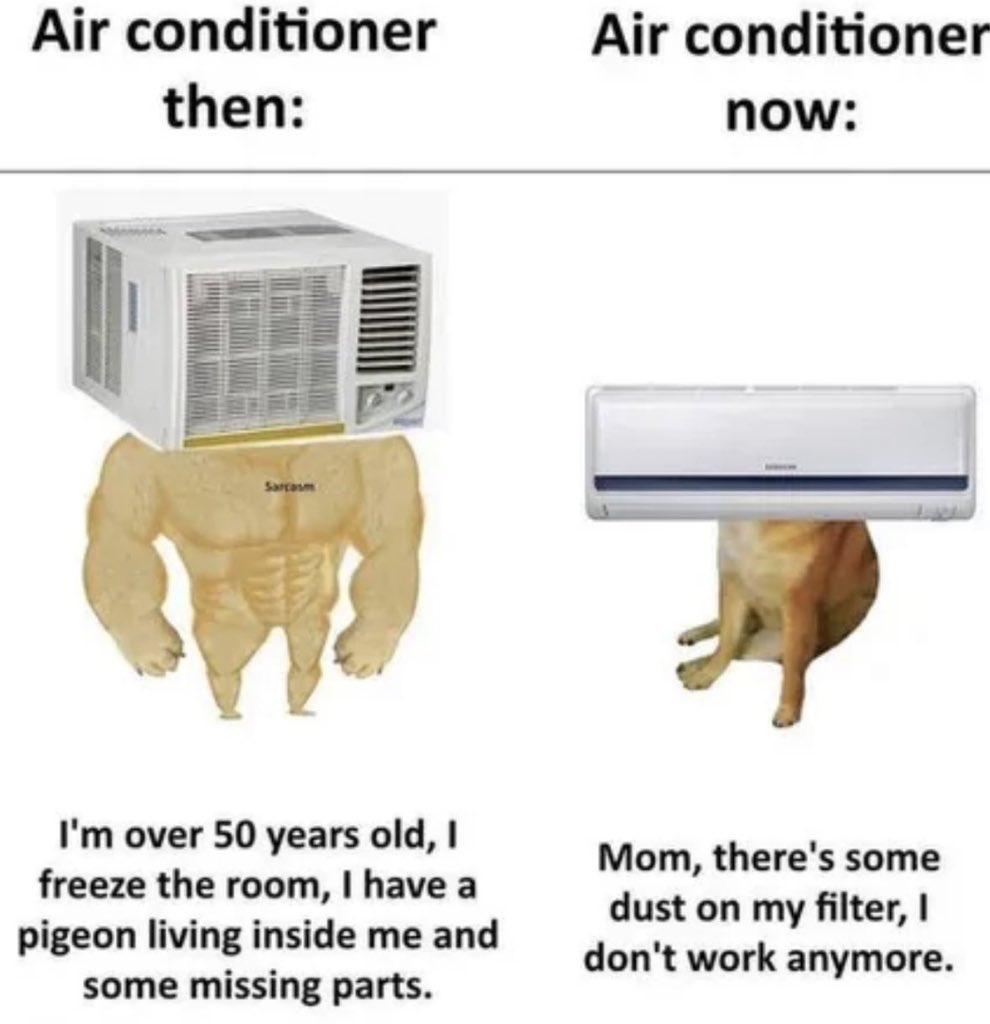this post was submitted on 03 Sep 2023
792 points (93.6% liked)
memes
10406 readers
1746 users here now
Community rules
1. Be civil
No trolling, bigotry or other insulting / annoying behaviour
2. No politics
This is non-politics community. For political memes please go to [email protected]
3. No recent reposts
Check for reposts when posting a meme, you can only repost after 1 month
4. No bots
No bots without the express approval of the mods or the admins
5. No Spam/Ads
No advertisements or spam. This is an instance rule and the only way to live.
Sister communities
- [email protected] : Star Trek memes, chat and shitposts
- [email protected] : Lemmy Shitposts, anything and everything goes.
- [email protected] : Linux themed memes
- [email protected] : for those who love comic stories.
founded 1 year ago
MODERATORS
you are viewing a single comment's thread
view the rest of the comments
view the rest of the comments

That old, toxic refrigerant just hit different
The new stuff just doesn't taste the same.
You can do a 1:1 swap of refrigerant, and if I remember correctly, the new stuff actually works better.
Heck, early refrigeration systems used friggen ammonia as it's refrigerant of choice. Works good at being compressed and evaporated, shame about it being poison.
Didn’t know that, I was thinking of the CFCs (chlorofluorocarbons) we used like 30/40 years ago
The reason those took off so well is cause Freon, while awful for ozone, is significantly safer than the previous usage of ammonia.
Refrigerators and air conditioners just compress a gas into a liquid, moves it through piping, and then decompresses the gas. When compressing the gas (a refrigerant), it'll want to turn liquid, but has to burn off heaps of excess energy, done as heat energy. That's done in the part of an AC unit that hangs outside. The liquid is then pumped to the other side of the machine, relieved of pressure, and sent through tons of piping with heat grates and fans for dissipating the cold air it generates. When evaporating from liquid to gas it needs to take in heaps of energy, so it'll draw heat from the air, cooling it. The gas is pumped back to the compressor on the other side of the unit to repeat the process over and over. Propane is really good at being compressed like that, and it has minimal effect on global warming, so it can be used as a freon alternative. Just yanno, don't use it in your car's AC.
Dope thank you!
My man just casually explained the refrigerator cycle, well done
Deffo gotta thank Technology Connections on YouTube for making it so simple to understand.
Yeah, that's how I learned it too, but its funny how he has 4 40min videos about it, or things that use it